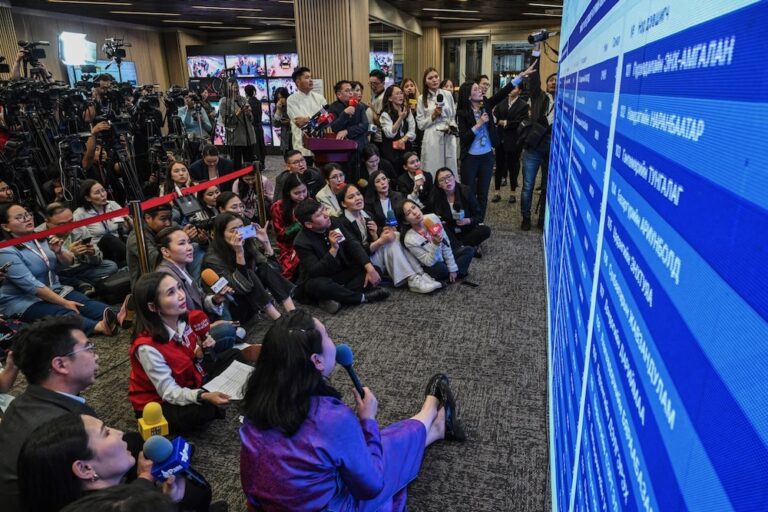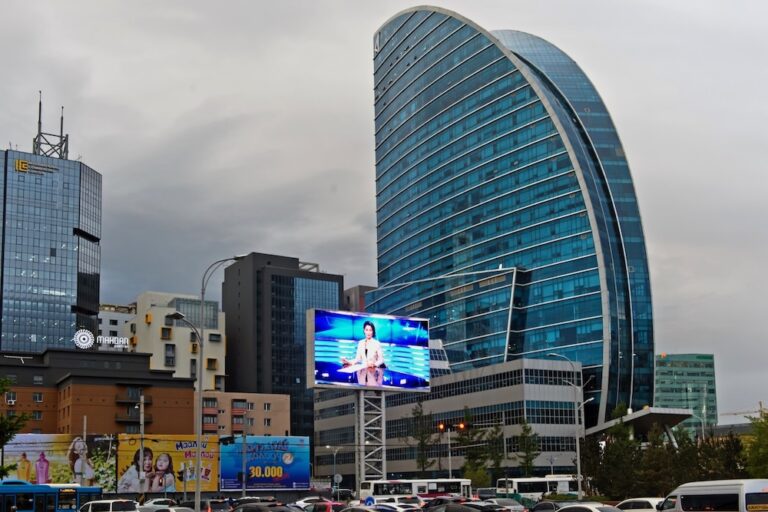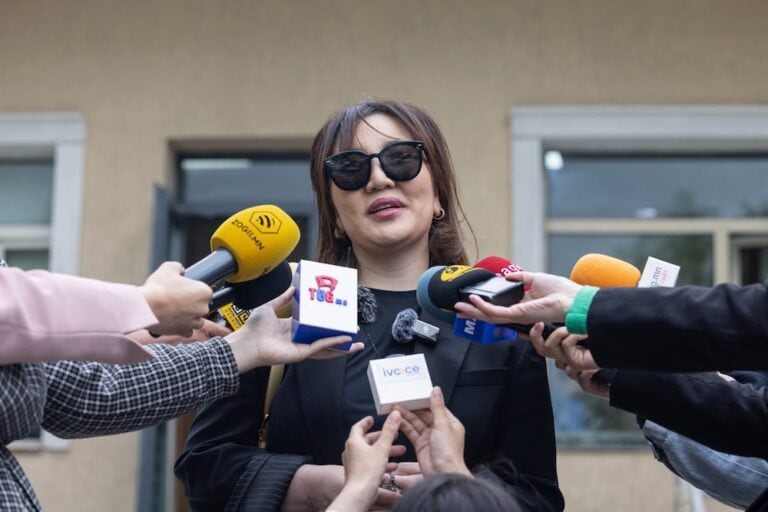(Globe International/IFEX) – On 31 August 2007, Mongolian citizen N. Demberel was sentenced to four months’ imprisonment after a judge found him guilty of criminal defamation. On 11 October, this sentence was commuted to a fine. Demberel had published an article entitled “I was finally valued by Ch. Ulaan” and broadcast a television program entitled […]
(Globe International/IFEX) – On 31 August 2007, Mongolian citizen N. Demberel was sentenced to four months’ imprisonment after a judge found him guilty of criminal defamation. On 11 October, this sentence was commuted to a fine.
Demberel had published an article entitled “I was finally valued by Ch. Ulaan” and broadcast a television program entitled “Red-Eyed Oligarchy”, referring to Mongolian President N. Enkhbayar and Member of Parliament Ch. Ulaan. The two politicians subsequently filed a complaint, complaining the article and television program were false and accusing Demberel of defaming them and damaging their reputations.
Demberel was previously chief of the Cabinet media and public relations office. He told the court: “I broadcast the television transmission after collecting information to give accurate information to the public; this is not against the law, according the Media Freedom Law.”
After the 31 August conviction, Demberel’s lawyer, M. Altan-Ulzii, petitioned the court to have the case reheard. The second hearing took place on 11 October. Altan-Ulzii’s team of lawyers argued that the verdict was not in accordance with the law. They also stated that it was not a criminal case, and as such Demberel should not have been prosecuted for his actions.
The judge ruled that the case fell under Article 110 and 111 of the Criminal Law. The verdict remained unchanged, but instead of a jail sentence, Demberel was fined 9,970,000 tugrugs (approx. US$8,450) – 130 times the amount of a Mongolian minimum wage salary.
After the first verdict was handed down, Mongolia’s media held a press conference, with journalists and media experts proclaiming that the verdict was wrong and negatively affected media freedom.
During the first hearing, the only media outlet allowed into court was the newspaper “Zuuni Shuudan” (“The Century Post”), despite the trial being open to the public. Nothing in the trial pertained to confidential information or material, so the court was open; however, the media had little chance of being admitted.
Demberel is not a journalist, but published the article referring to Enkhbayar and Ulaan in accordance with his right to free speech and was convicted under the Criminal Law on Defamation. Globe International considers this case contrary to free speech. Article 3 of Mongolia’s Criminal Law states: “A person cannot be found guilty for expressing personal opinions”.


